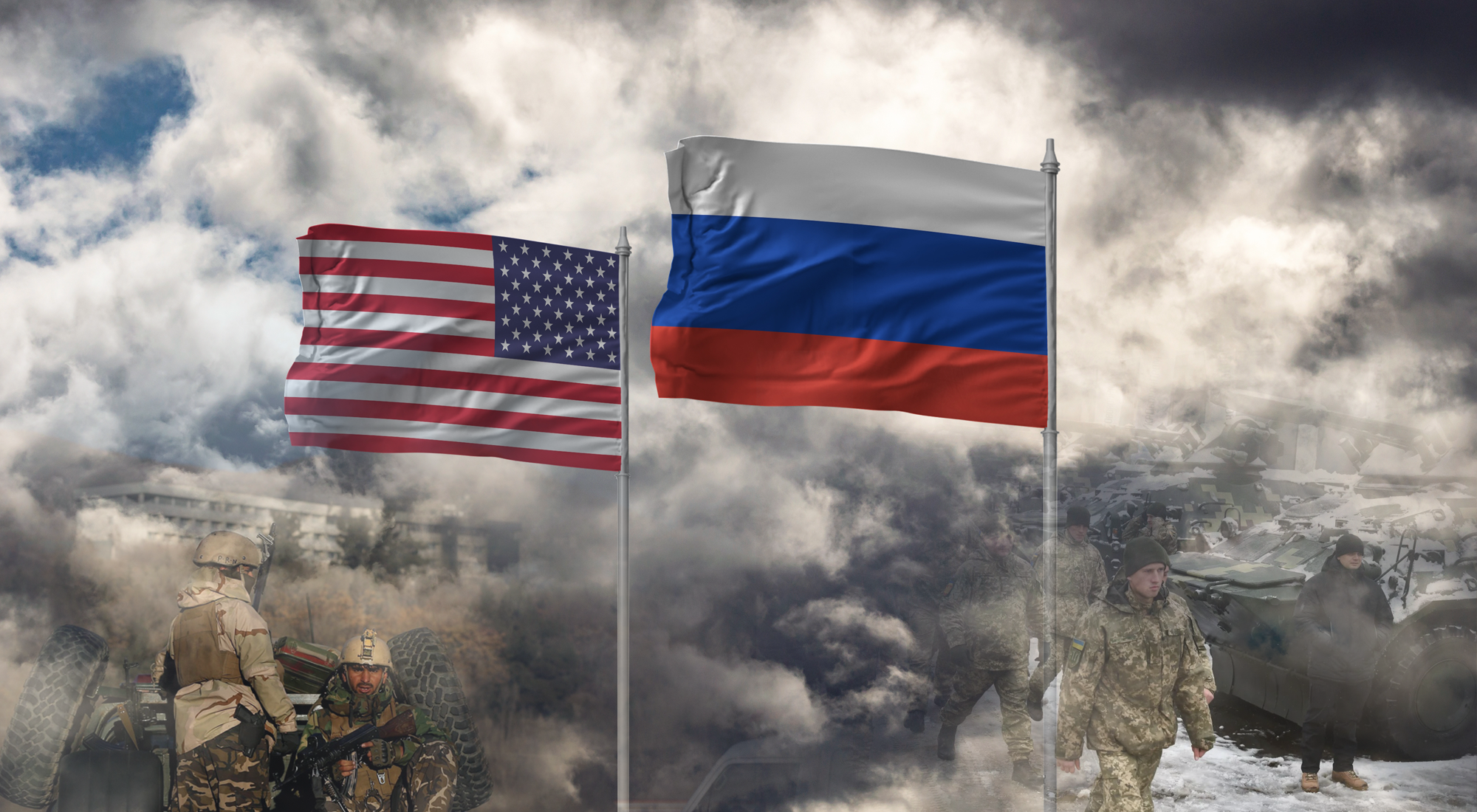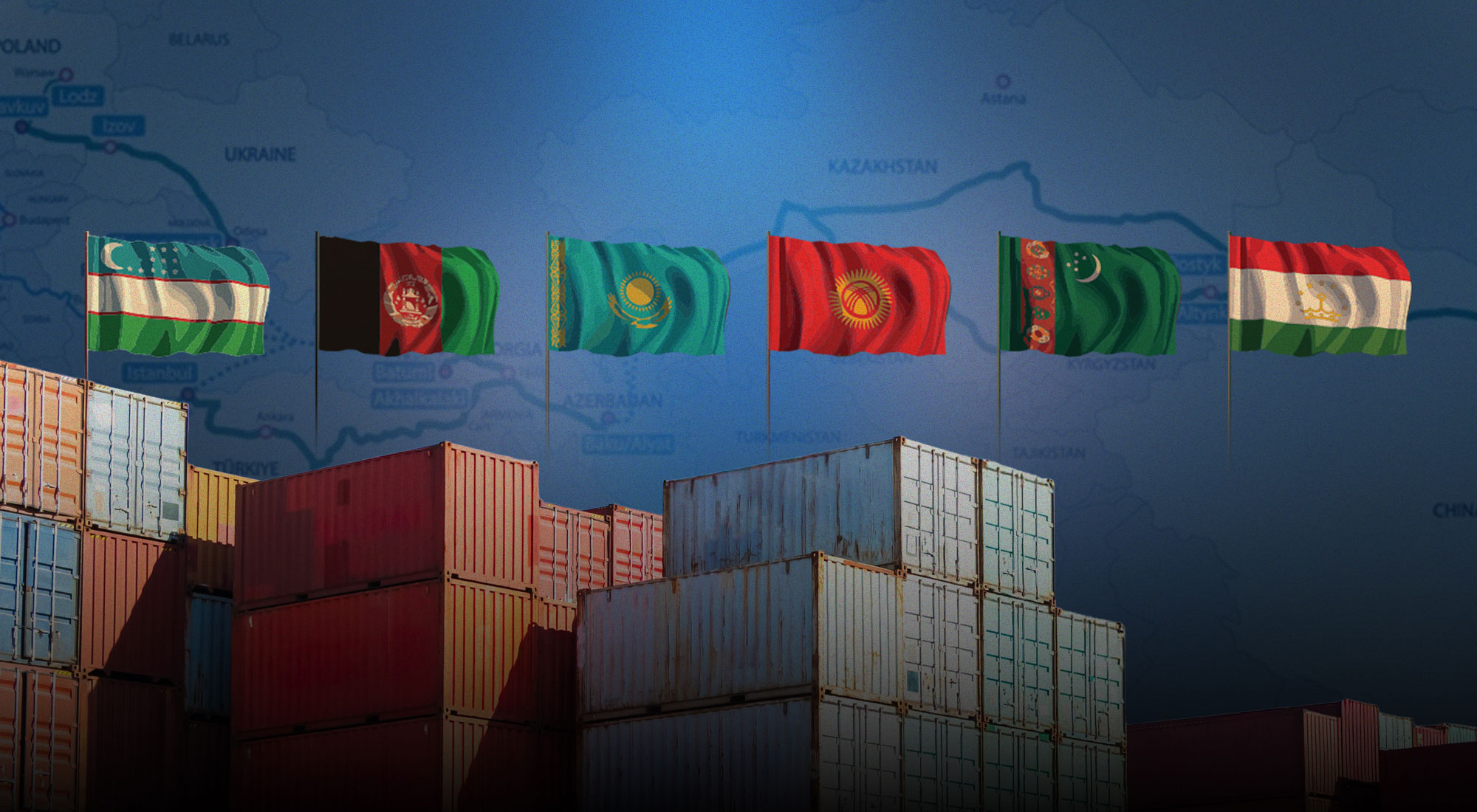The Middle East and the Arabian Gulf stand on the edge of a new era of regional politics that promises to reshape inter-regional relationships over the next generation. America’s defeat and bungled departure from Afghanistan serve as yet another poignant reminder of the limits of what can be achieved by occupying powers in the politically fractious and complex societies across the Middle East and South Asia. Despite being awash with information in the digital age, United States political and military leaders evinced an astonishing and persistent historic ignorance, which always suggested that military interventions and occupations in these regions rarely ended well.[1]
Russia’s President Putin apparently learned little from America’s folly, also assuming that the war he chose in Ukraine would be short, quick, decisive, and relatively cheap in political and economic terms. Instead, the enemy and the global community had other ideas. As is almost always the case, the war Putin thought he was getting himself into is not the war that he finds himself in. As also re-discovered by the US in Iraq and Afghanistan, war has a way of developing its own logic – a truism being shoved down Russia’s throat as it bludgeons its way around the Ukraine, blasting away at will to no strategic effect.
What do these two events mean for the Middle East? The initial reactions of regional states tell us a lot, but also speak to undeniable longer-term trends. America’s erstwhile regional partners have ignored President Biden’s call to condemn Russia’s aggression and join the global coalition, showering ever more stringent sanctions and bombastic condemnations on Russia and President Putin. In what at one point would have been unthinkable, according to news reports, Saudi leader Crown Prince Salman refused to take President Biden’s phone calls to request that the Kingdom increase oil output to reduce gas prices. Likewise, Israel, America’s so-called “strategic” partner and the recipient of hundreds of billions in gratis US tax dollars and weapons going back more than 50 years in the most expensive corporate welfare program in history, has declined to join its benefactor’s anti-Russia coalition. Another key US partner, the United Arab Emirates, likewise has chosen to remain on the sidelines of this global event and declined to join in on the global chorus condemning the war.
The reaction of these states speaks of their intention to pursue their own interests above all else – reflecting a general desire to chart their own course as the sun sets on the region’s imperial age, dominated at various points by the Soviet Union and United States. This Strategic Insight examines the regional implications of the end of this imperial age. The essay argues that the new era will see regional and domestic politics assert themselves more forcefully – not always to a positive effect for the people living through the era.
To be sure, America’s defeats in Afghanistan and Iraq, and Russia’s disastrous military operation in Ukraine have not in and of themselves suddenly created a changed regional political order. That political order has been gradually taking shape over the last couple of decades as America, in particular, blundered about in Afghanistan and, eventually, also crashed to ignominious failure in its nation-building efforts in Iraq. While seeking to re-insert itself as some kind alternative regional power broker with its intervention in the Syrian civil war, the reality is that Russia lacks the military power and political influence to decisively referee regional politics.
As realist international relations theorists remind us, the international system is one of self-help where the strong survive and prey upon the weak in the zero-sum balance of power calculus. When one state weakens, other states perceive that weakness and move to exploit the opportunity to enhance their own power and influence. That process is now well underway across the region with America’s waning power and Russia’s international isolation.
There also can be no doubt that the defeats in Iraq and Afghanistan have certainly scarred the psyche of America’s foreign policy elite, not to mention the human and monetary costs of these ill-fated wars.[2] Whether or not these groups recognize that America’s bookended defeats in Iraq and Afghanistan means the end of the United States providing security for regional elites, however, remains to be seen. As noted below, this recognition, or the lack thereof, may also be another source of instability in regional politics. Likewise, it remains unclear what Russia’s global obloquy will mean for future forays into regional politics.
Politics and the battle of national systems
It is worth emphasizing that America’s attempts to create democracies went down in flames in Afghanistan and Iraq. Both states now tumble inexorably towards authoritarian kleptocracies – hardly the narrative of the “end of history” in which some believed that the West’s Cold War victory represented the beginning of a new age of global politics based on free trade, globalization, transparency, and democracy.[3] Today, virtually none of the regional states (with the exception of Israel, at least within its sovereign borders) fits this description. The region currently consists of Islamist authoritarian governments (Turkey, Iran, Tunisia and Afghanistan), security sector corporate elites (Syria and Egypt), and tribal monarchies (Gulf States). Adding the failed states of Iraq, Yemen and Libya to this group further reinforces the idea that the region consists of a rather diverse, non-democratic collection of states with, in a few cases, long-standing grievances against each other.
The region’s imperial overlords (the United States, Great Britain and the Soviet Union) partially managed these grievances and kept them from spinning out of control. A common thread of regional imperial history is that in striking deals to manage regional security with the referenced governing elites, these outside powers then freed up those elites to focus on their most serious threats: internal opponents. Most of the regional states established efficient internal security and intelligence services to monitor internal political opponents, which co-opted, incarcerated, or eliminated internal political opponents.
The net effect of the arrangements between the ruling elites and the outside powers was to short circuit the development of alternative domestic political systems. Gamel Abdel Nasser’s short-lived call for Pan-Arab Nationalism and a United Arab Republic decisively crashed and burned after Egypt’s defeat in the Six-Day War. Competing ideas as represented by the versions of Arab Baath socialism first suggested by the Syrian philosopher Michel Aflaq, also showed a short shelf life as both Syria and Iraq devolved into authoritarian dictatorships in the 1970s. Arguments about individual identity, state identify, the nature of the social contract, and the role of Islam in all the above were driven underground. Iran tried unsuccessfully to square the circle to address these fundamental questions with its own failed version of an Islamic republic.
Of the regional states, Turkey at one point was thought to have arrived at a lasting (and democratic) governing system that featured a secular government, a military that tried to stay out of politics, along with transparency, a free press, and a civil society. This governing system clearly has been subsumed by the authoritarian Islamist regime of Recep Tayyip Erdogan. Taking a page from its neighbors in Iraq, Syria, Egypt, and Iran, Erdogan built an internal security service to help ensure his continued hold on power. Importantly, Turkey also dropped any pretense of more closely aligning itself with the West and is charting its own independent regional course in line with its objective of becoming an arbiter of regional peace and security in its own right.
The point of this section is to highlight the degree to which these authoritarian systems all have subverted the evolution of their own domestic politics through a combination of money and coercion. Hopes for political reforms following the Arab Spring in 2011 were quickly dashed across the region by security institutions. The remaining mainstream political group left – despite the attempts to run it off – are the Islamists and the Muslim Brotherhood. Where once the regional elites were free to focus on repressing dissent at home, America’s gradual departure and Russia’s declining influence will see the regional elites facing the dual challenges of managing not just the natural order of politics at home but the rough and tumble of regional politics on their borders.
It is hard to see these trends changing with the decline of America’s influence and, which, to be sure, often saw Washington only pay lip service to Western liberal ideals touting transparency, democracy, human rights, and a free press. Likewise, it is hard to see Russia decisively influencing regional politics with military interventions going forward. One possible outcome is increased internal political violence between the Islamists and the internal security forces across the region.
Regional balance of power
As previously noted, the regional balance of power has been in a transitional state over the last 18 years as it became increasingly clear that the United States would not succeed in installing a vibrant, pro-Western democracy in Iraq. What had started as a gleam in the eye of the neoconservatives that convinced President George W. Bush to invade Iraq has turned into their worst nightmare: a corrupt, pro-Iran, kleptocratic, failed state dominated by rival militias most of whom receive their money and arms from the Iran Revolutionary Guard Corps.
It was then Saudi Foreign Minister Saud al-Faisal who famously remarked that the United States had effectively turned Iraq over to the hated Iranians for no real reason.[4] Echoing his Saudi colleague, Jordan’s King Abdullah ominously warned the region of the coming “Shi’ite Crescent” stretching from Tehran to Damascus and down into Lebanon, hanging like a sword of Damocles over the Sunni states of the Arabian Peninsula and the Levant – even stretching to Cairo and the Nile delta.[5] The Gulf States, Egypt, and Israel clearly and quickly recognized the implications of America’s lost war in Iraq, even as the United States clung to its deteriorating position in the Iraqi civil war – in which it abandoned its former Sunni partners in favor of the Iranian-sponsored Shi’ite militias masquerading as members of the Iraqi national army.
With the balance of power in flux as Iraq went up in flames, regional states predictably reacted in accordance with realist international relations principles. During the war, informal partnerships emerged between one-time enemies that could make common cause. A complex system of multipolarity emerged in which rival states and blocs vied with one another for regional primacy and influence. During the U.S. war in Iraq, the coalitions took shape, pitting the states of the Arabian Peninsula and Israel against the Iran-Iraq-Syria and Lebanon axis with its Houthi allies in Yemen.
Rumors emerge from time to time of a clandestine Saudi-Israeli dialogue at the highest level – an informal partnership that could scarcely have been conceived in the decade prior to the war in Iraq. The Abraham Accords, finalized by the Trump Administration in August of 2020, formalized relations between Israel, Bahrain and the United Arab Emirates as the face of the new bloc. While refusing to formally join the agreement, Saudi Crown Prince Abdullah reportedly met with then Israeli Prime Minister Benjamin Netanyahu in November 2020 in the future-oriented Saudi city of Neom.[6]
Interestingly, sitting on the sidelines as the region divided itself up into rival blocs was Turkey – America’s former stalwart Cold War partner that then refused to allow the United States access to its military bases in planning for the 2003 Iraq invasion. Turkey’s real opportunity to assert a more prominent regional role emerged with Syria’s disintegration. Turkey slowly but surely accepted responsibility for policing operations in what had once been northern Syria. Whereas Turkey had cultivated strong ties with Israel in the Cold War era and its immediate aftermath, that relationship cooled significantly under Erdogan’s leadership and, instead Turkey began embracing its new/old role as regional power broker.
These rival regional players have found themselves engaged in the failed state proxy wars in Yemen, Syria, Iraq, Libya and even Lebanon in which they have, in some cases, found themselves on the same side while in other places found themselves opposing each other. The intervention of the regional rivals in these wars have had one indelible affect: the wars have gone on longer than they would have otherwise done so.
America’s withdrawal from Afghanistan also reshapes the struggle for power in Central Asia. Instead of the 19th century face-off between Britain and Russia, today’s players in the quest for regional ascendance include Russia, China, India, Turkey and Iran, with the West seeking influence from a weakened position. Of these players, China will see the its influence increase due to its extremely close relationship with Pakistan. Kabul eventually may become one more (albeit land-based) outpost in the “string of pearls” that China is building across Central and South Asia and the Indian Ocean in pursuit of markets, increased political influence, and access to vital raw materials.
It is entirely possible that lots of undesirable trends gather momentum over the next quarter century, such as:
- Continued proxy wars in areas where the military battles for political power remain in the balance: Iraq, Syria, Libya, and Yemen.
- Regional states with the means (money, source of fissile material, human capital, and the physical infrastructure) could well seek to develop their own direct or latent nuclear weapons capability to help manage the unstable regional environment. Topping this list are Iran, Saudi Arabia and Turkey.
- A wider regional war between the Sunni-bloc plus Israel against Iran and its proxies.
All these possibilities are in play as the region sorts through its dynamic regional balance of power.
Conclusion
The implications of this analysis are twofold. First, America’s gradual retreat from its commitment to provide security in the Middle East may finally remove the distorting effect that outside powers have exercised on regional and national politics across the Middle East and South Asia dating back more than a century.
Over the course of this involvement, regional elites that prospered and gained influence through their relations with outside powers developed their own systems of internal security that stunted the growth of political movements. Today, the Islamists as embodied by the Muslim Brotherhood represent the only mass-based political movement in the Middle East left over from the era – despite the attempts of the elites to eliminate it. And, interestingly, Turkey is today ruled by Islamists that gained power at the ballot box, a political system that presents a profound threat to the monarchies of the Arabian Peninsula and the security sector elites that rule Syria and Egypt.
Second, Regional politics have responded quickly and quite rationally to the decline of America’s influence, with rival blocs coming together driven by congruent interests and objectives. Israel finds itself in partnership with its one-time implacable foes – a partnership seeking to prevent the spread of Iranian influence and power, while also simultaneously recoiling at the prospect of increased Islamist influence in domestic politics. Iran finds itself at the head of a dubious bloc that includes three failed states (Iraq, much of Yemen, and Syria) and one partially failed state (Lebanon). For the time being, at least, the multi-polar system remains in a kind of tenuous (albeit violent) balance.
A dangerous and final wild card, however, remains – that could see the emerging and dynamic regional system upended in unpredictable ways. As previously stated, while regional states noted the decline in U.S. influence and power during the Iraq war, it is not clear that parts of America’s foreign policy elite see the same evidence of retreat and decline.
America’s neoconservative foreign policy elite still exert influence in the corridors of Washington DC. It is clear that this community views the growth of Iranian political and military power as a grave threat to Israel and the region, and still sees the need for the United States to continue in its role of regional policeman.[7] Should this group – or others in the Republican party who advocate the use of force – once more return to political power, all bets are off in terms of seeing the United States continue its inexorable retreat from the region.
References
[1] As chronicled in Daniel Moran, Wars of National Wars of Liberation (London: Cassell, 2001).
[2] The Watson Institute at Brown University Costs of War Project places the cost of America’s wars in Iraq, Afghanistan, Pakistan, and Syria at $6.4 trillion. A breakdown of these figures is posted online at https://watson.brown.edu/costsofwar/figures. According to Statista, through February 2021, 7036 servicemen/women lost their lives in Iraq and Afghanistan – link at https://www.statista.com/statistics/303472/us-military-fatalities-in-iraq-and-afghanistan/. Defense Department statistics indicate that just over 59,000 servicemen/women were wounded in action in Iraq and Afghanistan. These figures do not include psychological injuries that emerged once troops came back to the US, such as suicides due to Post-Traumatic Stress Disorder.
[3] As argued by Francis Fukuyama in The End of History and the Last Man (New York: Free Press, 1992).
[4] “Washington Is Handing Iraq to Iran,” Gulf News, September 22, 2005. Saud’s full quote: “We fought a war to keep Iran out of Iraq after Iraq was driven out of Kuwait. Now we are handing the whole country over to Iran without reason.”
[5] A concept unpacked in Kayhan Barzegar, “Iran and the Shiite Crescent: Myths and Realities,” Brown Journal of World Affairs 15, No. 1 (Fall/Winter, 2008).
[6] Reuters, “Analysis: Covert Israeli Saudi Meeting Sends Biden a Strong Message on Iran,” November 27, 2020.
[7] For an example, see Dennis Ross, “The Threat of War is the Only Way to Achieve Peace with Iran,” Foreign Policy, October 27, 2021; Also see Tom Friedman, “The Best Anyone Can Hope for with Iran is Pretty Bad,” New York Times, June 15, 2021.








